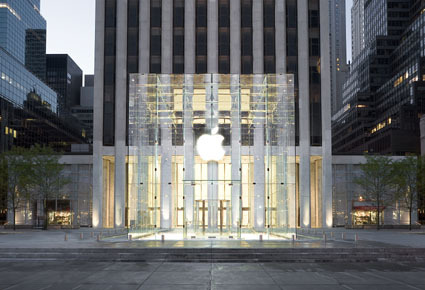Lawsuit Claims Apple’s In-Store Facial Recognition Led to a False Arrest
A student from New York has sued Apple for $1 billion over the company’s use of in-store facial recognition. According to him, Apple’s technology incorrectly tied him to a series of thefts from Apple stores, which led to his false arrest. Apple has denied the use of facial recognition technology in its stores.
Apple’s Flawed Facial Recognition
The 18 year old Ousmane Bah was arrested at his home in New York in November of last year and was charged with stealing from an Apple store. The arrest warrant included a photo that didn’t look like him, according to the lawsuit Bah filed on Monday. According to the lawsuit, Bah was attending his senior prom the day he was supposedly stealing from the Apple store.
Bah said that he had previously lost a non-photo learner’s permit, which was later used by the thief as identification in Apple’s stores. As a result, Apple’s in-store facial recognition systems tied the name on the permit with the thief’s face. The student also claimed that Apple uses this flawed facial recognition system in its stores in order to catch thieves.
If such a system exists, it may not be that smart if thieves can easily bypass it with a stolen ID. Then again, it's possible Bah's arrest could have stemmed from more traditional techniques, like employees looking out for alleged shoplifters seen in previous footage, and police then following a lead about an ID that was used by the alleged shoplifter in the past.
Bah also said in his lawsuit that his false arrest led to severe stress and hardship, for which he’s now asking Apple to pay $1 billion. That's a lofty, and at best he may get a tiny fraction of that. But the student has also succeeded in attracting attention to this issue of flawed facial recognition technology, which may have affected others or will in the future.
For its part, Apple has denied that its stores use facial recognition technology, so it will be interesting to see whether or not the company is interpreting the use of facial recognition technology in its stores in a different way or if Bah was mistaken and the warrant for his false arrest appeared from a different source.
Can Facial Recognition Technology Be Trusted?
We’ve seen some police departments in the U.S. adopt Amazon’s Rekognition facial recognition technology, despite some research groups claiming it has significant flaws in identifying people of color. We’ve also seen reports about UK police’s adoption of severely flawed facial recognition technologies that are wrong almost all the time in identifying the right target.
Get Tom's Hardware's best news and in-depth reviews, straight to your inbox.
Both private companies and governments seem eager to trust and adopt “AI” and “facial recognition technology." Despite promises from these companies’ marketing divisions, these technologies often prove problematic. Few are willing to admit that these technologies are far from perfect, and until they are much closer to perfection, adopting and / or trusting them too much can lead to abuse and harm to innocent people
Lucian Armasu is a Contributing Writer for Tom's Hardware US. He covers software news and the issues surrounding privacy and security.
-
AllanGH ReplyDark Lord of Tech said:1 Billion seems a little low.
I was thinking something very similar.... -
bit_user Reply
According to what you reported, that should be "Apple's flawed use of in-store facial recognition tech". Nothing in the article indicated the facial recognition made any errors - it sounds like a human/process error in assuming the thief was using his real ID.Lucian Armasu said:A New York student claims that Apple's use of flawed in-store facial recognition tech led to his false arrest.
But this needn't have involved facial recognition, at all. If the thief merely used the ID in a return fraud, then the exact same outcome could occur, even without any form of video surveillance.
What's missing from the story is the basis on which the litigant believes facial recognition technology was involved. Was he just making a wild guess?
